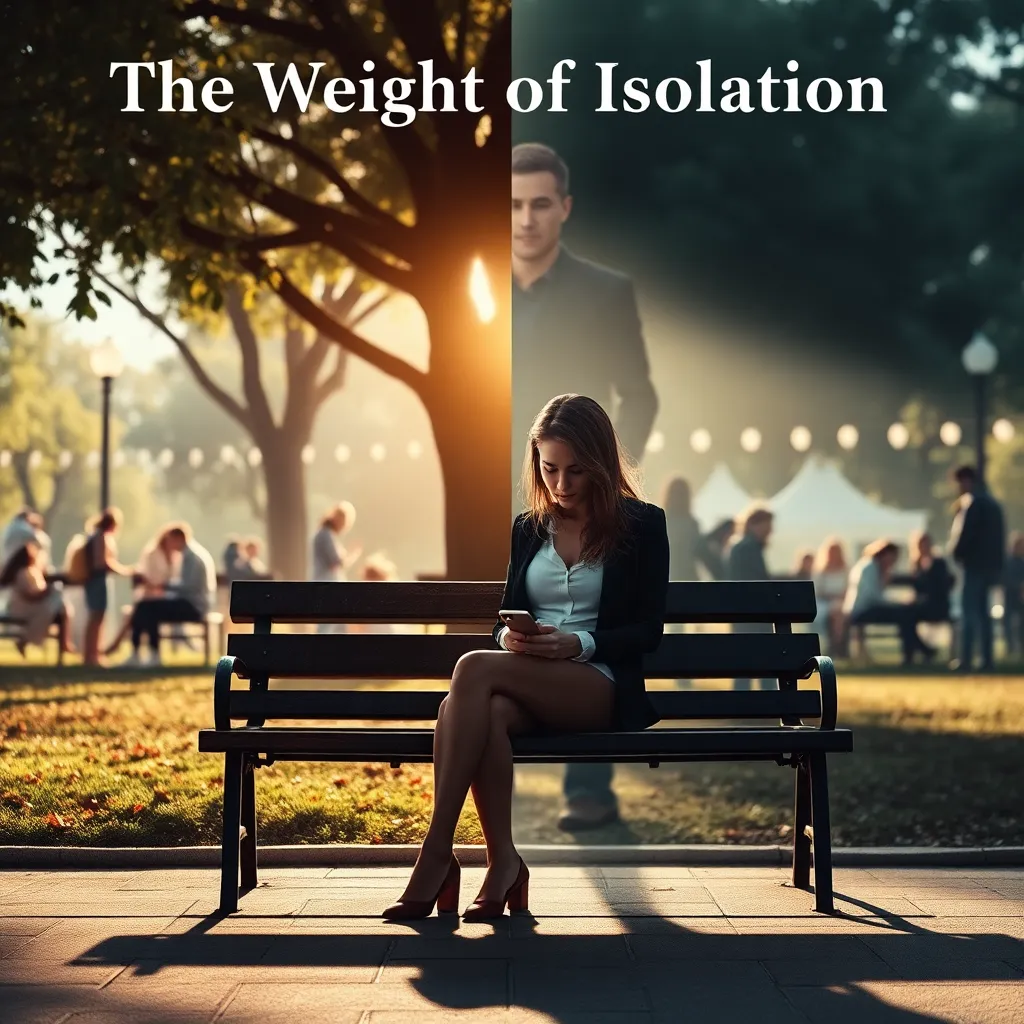Navigating friendships can sometimes feel like sailing through calm waters, but what happens when a storm unexpectedly brews? If you’ve felt the unsettling impact of a narcissistic friend, you’re not alone, and understanding the emotional effects they can have on your life is crucial. As we delve into the nuanced ways narcissists can sabotage friendships, you’ll discover insights that resonate deeply with your own experiences and provide clarity on the chaos they can create.
Friendships should be a source of support and joy, yet narcissists often transform these bonds into emotional battlegrounds. Recognizing the subtle emotional effects they impose is the first step towards regaining control and protecting your emotional well-being. In this article, we’ll explore six specific emotional impacts that can leave you feeling isolated and misunderstood, offering you a chance to identify and address these challenges head-on.
You’ll learn how narcissists manipulate emotions, erode trust, and foster a sense of dependency that can be difficult to break. Understanding these dynamics is not just about acknowledging the pain, but about empowering yourself with the knowledge to rebuild healthier, more fulfilling friendships. Join us as we shed light on these emotional effects, providing you with both the awareness and the tools to navigate your friendships with confidence and compassion.
1. Erosion of Trust and Loyalty

When dealing with narcissists, the gradual erosion of trust and loyalty is often an unavoidable reality. They may appear charming at first, but over time, their actions reveal a pattern of manipulation and deceit.
Consider a scenario where a narcissistic friend repeatedly breaks promises, leaving you feeling vulnerable and betrayed. This breach in trust can make it increasingly difficult to rely on them, leading to a fragile and unstable friendship.
Moreover, narcissists often prioritize their own needs, disregarding the emotional well-being of others. This self-centered behavior can create a feeling of isolation, as you may begin to question your value and importance in the friendship.
It’s crucial to recognize these patterns and set boundaries to protect your emotional health. Open communication and maintaining a supportive circle of friends can help rebuild your sense of trust and loyalty.
Ultimately, understanding and addressing the erosion of trust and loyalty can empower you to make healthier friendship choices. By doing so, you safeguard your emotional well-being and cultivate connections that genuinely nurture and support you.
2. Impact on Self-Esteem

Narcissists often have a profound impact on the self-esteem of their friends. They tend to engage in subtle criticism and backhanded compliments that can leave one doubting their own worth. Imagine a scenario where a friend constantly makes you feel like you’re not doing enough, even when you’re at your best. Over time, this can erode your confidence, making you question your abilities and self-worth.
Being in a friendship with a narcissist can lead to an unhealthy dependency on their validation. You might find yourself frequently seeking their approval, feeling inadequate without it. This need for validation is a common trap, as narcissists often withhold affirmation or give it sparingly to maintain control. Recognizing this pattern is crucial for breaking free from its grip and reclaiming your sense of self.
Experts suggest that maintaining a strong sense of self is key to resisting the negative impact of narcissistic behavior. Building a robust internal dialogue that reinforces your own value can be empowering. When you remind yourself of your strengths and achievements, you create a buffer against external negativity. Fostering self-compassion and celebrating small victories are effective strategies in this journey.
Ultimately, protecting your self-esteem involves setting boundaries with those who attempt to undermine it. It may be necessary to limit interactions with individuals who consistently diminish your confidence. Ensuring that your social circle is filled with supportive and uplifting people can make all the difference. Ending on a hopeful note, remember that prioritizing your self-worth is not selfish—it’s essential to cultivating healthy, balanced relationships.
3. Emotional Manipulation Tactics

Navigating friendships with narcissists can be like walking through a minefield of emotional manipulation tactics. These individuals often employ strategies such as gaslighting to distort reality and create self-doubt in their friends. Imagine being convinced that your recollection of events is flawed, leaving you questioning your own memory. A friend might tell you that a conversation never happened, or that you’re overreacting to their actions, making you second-guess your perceptions.
Narcissists can also use a tactic known as triangulation, where they involve a third party to validate their views and invalidate yours. This can lead to feeling isolated and unsupported within the friendship, as the narcissist aligns others against you. For example, they might tell a mutual friend that you’re being unreasonable, leaving you feeling outnumbered and misunderstood. In these moments, it’s important to trust your own feelings and seek external perspectives from unbiased sources.
Silent treatment is another tool in a narcissist’s arsenal, wielded to exert control and power. By suddenly withdrawing communication, they leave you feeling anxious and desperate for their approval. This tactic can make you feel like you’re walking on eggshells, striving to regain their favor without knowing what went wrong. Understanding that this behavior is a form of manipulation can help you maintain your emotional equilibrium.
Recognizing these manipulative behaviors is the first step toward safeguarding your emotional health. By identifying these tactics, you can better navigate the relationship and protect yourself from undue stress. As you become more aware, you empower yourself to make informed decisions about the friendships you choose to nurture. This awareness can ultimately lead to healthier, more fulfilling connections.
4. Isolation from Other Friends

When a friend with narcissistic tendencies enters your life, you may start to feel an increasing sense of isolation from other friends. They often want to be the center of attention and can subtly discourage you from maintaining your other relationships, making it seem like they are the only friend you truly need.
Imagine a scenario where a narcissistic friend constantly criticizes your other friendships, pointing out supposed flaws in those friends. Over time, this can create a wall between you and those who genuinely care about you, leaving you feeling disconnected and alone.
Experts suggest that narcissists thrive on control and may create an environment where you feel guilty for spending time with others. This behavior can be insidious, as it often comes wrapped in the guise of concern for your well-being, making it challenging to recognize and address.
Having a diverse support network is crucial for emotional health, and being aware of attempts to limit it empowers you to take action. By recognizing these patterns, you can set boundaries that nurture your existing friendships and prevent the isolation that can result from a narcissistic influence.
5. Creating Dependency and Control

Narcissists often employ strategies to create a sense of dependency and control in their friendships. By positioning themselves as the indispensable friend, they make you feel like you can’t manage without their guidance or approval. This tactic can be likened to a friend who insists on being involved in every decision you make, whether it’s about your career or what to wear to a party.
Such friends may subtly undermine your confidence, making you believe that their perspective is the only one that matters. Over time, this can erode your ability to trust your own judgment and instincts. Imagine a scenario where every time you express an idea, your friend dismisses it, implying that they know what’s best for you.
To counteract this, it’s crucial to establish healthy boundaries in your friendships. Start by identifying areas where you feel most influenced and practice asserting your opinions and preferences. By doing so, you gradually reclaim your autonomy and reduce their control over your choices.
Understanding this dynamic is key to protecting yourself from emotional manipulation. You deserve friendships that empower rather than control you, fostering an environment where mutual respect thrives. By recognizing and addressing these patterns, you can cultivate more balanced and fulfilling relationships.
6. Cycle of Guilt and Blame

In the intricate web of friendships, narcissists often weave a cycle of guilt and blame that can deeply affect emotional dynamics. They have a knack for subtly shifting responsibility for any disturbance onto their friends, leaving those around them feeling constantly at fault.
Imagine a scenario where a friend feels guilty for planning a night out that the narcissist didn’t enjoy, despite their lack of effort to engage. This tactic keeps friends in a perpetual state of apology and anxiety, eroding their self-esteem over time.
According to relationship experts, this cycle is designed to maintain the narcissist’s control by keeping their friends off balance. By continuously shifting the blame, narcissists ensure that their friends are always striving to make up for perceived shortcomings, thus reinforcing dependency.
Breaking free from this cycle requires setting boundaries and recognizing the manipulation at play. Friends can reclaim their power by acknowledging their feelings and refusing to accept responsibility for the narcissist’s emotional state.
Ultimately, understanding this cycle empowers individuals to make choices that support healthier, more balanced relationships. By recognizing these patterns, friends can take steps toward nurturing connections that are based on mutual respect and understanding.
Conclusion: Creating Beautiful Outdoor Spaces
As we journey through the complex dynamics narcissists introduce into friendships, we uncover six emotional effects: erosion of self-esteem, manipulation of emotions, fostering dependency, instilling self-doubt, creating isolation, and the cycle of idealization and devaluation. Understanding these tactics is the first step toward shielding oneself and nurturing healthier connections.
Your actionable next step is to self-reflect and identify any signs of these effects in your friendships. Awareness is empowering; it allows you to set boundaries and prioritize your emotional well-being. As you reflect, consider having open conversations with trusted friends to reinforce positive relationships.
Remember, safeguarding your emotional health is vital for maintaining fulfilling friendships. As you continue to strengthen your relationships, bookmark this article as a reliable resource to revisit whenever you need a refresher or a moment of clarity.
Looking forward, embracing these insights can pave the way for more genuine, supportive, and enriching relationships, where mutual respect and understanding are at the forefront. You are empowered to foster connections that celebrate your authentic self. Save this article, and let it be your guide toward lasting relationship success.
